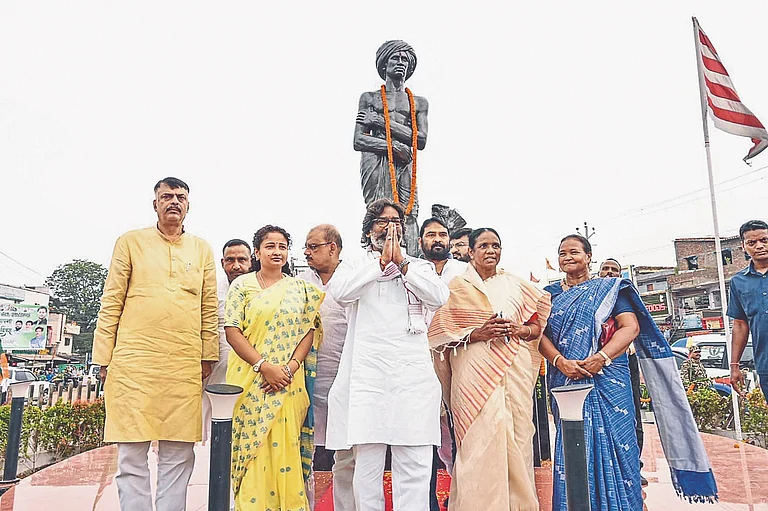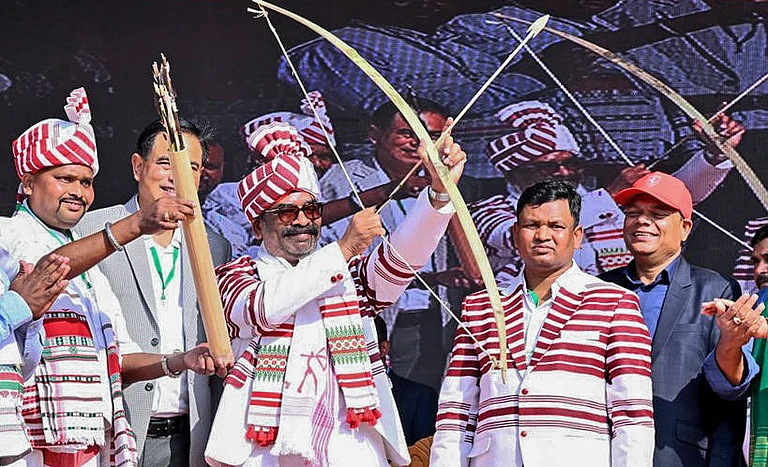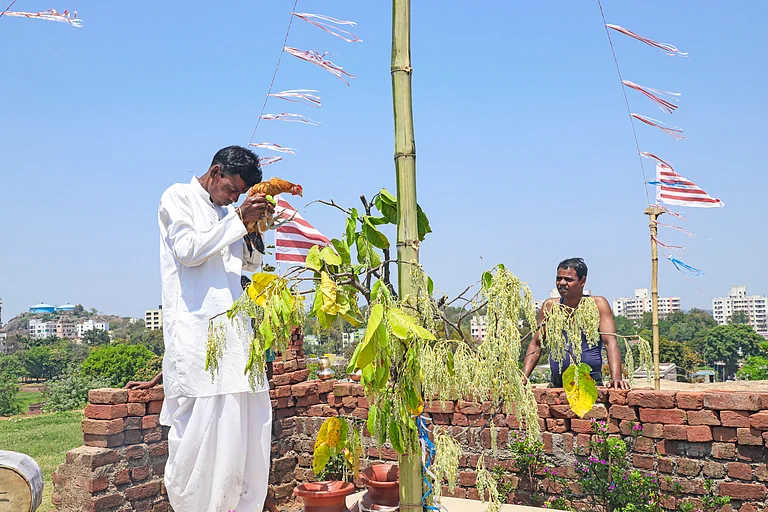Nestled in the embrace of snow-laced mountains, the second edition of the Kinnaur Literature Festival unfolded on June 7-8 in the serene village of Kalpa, Himachal Pradesh, where whispers of change stirred the air. The Kinnauri people, fiercely proud of their tribal customs and Buddhist heritage, voiced concerns over the erosion of traditions in a rapidly modernising world. Yet, scholars at the festival—themed ‘Conversations in the Lap of the Himalayas’—delivered a powerful message: no culture is immune to change, and a culture that resists evolution risks fading into obsolescence. “That which does not change is dead,” they said, setting the stage for vibrant debates on heritage, identity, and progress.
In the festival’s lead session—'History and Heritage Conservation in the Land of Tibetan Buddhism and Devta’—eminent historian Chetan Singh framed change as inevitable. “No society is immune to change or other influences. The external perspective needs comparison between our society and other societies,” he said, urging Kinnauris to view their evolving culture through a broader lens. Acharya Roshan Lal Negi, a local scholar, traced the region’s pre-Aryan roots, noting how the arrival of Aryans reshaped Kinnaur’s indigenous “Shoo” culture into a deity-centric one. “Our customs and traditions have undergone many changes,” he said, his words resonating with the audience gathered under Kalpa’s clear skies. Filmmaker and historian Sohail Hashmi added a poetic touch and said: “The tribal belief everywhere is that everything has life. Customs and culture shouldn’t be frozen in time. If there’s no change, the culture is dead. We, the living, must decide what to preserve and what to let go.”
The festival’s opening session—'Kinnaur’s Past and Future: Navigating Change in the Timeless Land’—moderated by former bureaucrat Deepak Sanan, featured Himachal Pradesh Revenue, Horticulture, and Tribal Development Minister Jagat Singh Negi, Vidhya Sagar Negi, Sneh Lata Negi and Pamiti. Jagat Negi, a son of the soil, spoke passionately about preserving Kinnaur’s identity. “We should safeguard our language, traditions, and culture. We are tribals because of our customs,” he said, lamenting the sway of non-tribal influences on the younger generation. The panel urged the community to thoughtfully navigate which traditions to uphold and which to reform in a changing world.
Change, however, sparked heated discussions, particularly around women’s rights. Septuagenarian activist Rattan Manjari took the stage to challenge the customary law Wajib ul Urj, which denies Kinnauri women inheritance rights. “Women do not inherit their father’s property like their brothers, causing distress, especially for widows and single women,” she said. While her call for equality drew applause, some voiced fears that reforming property laws could lead to non-tribals acquiring tribal land, threatening cultural integrity. The debate captured Kinnaur’s delicate dance between progress and preservation.
Geopolitical tensions found their place amidst the festival’s cultural focus. In the session ‘Diplomacy and Defence: Conflict and Cooperation with Neighbours’, moderated by Harish Khare, former media advisor to Prime Minister Manmohan Singh, retired diplomat T.C.A. Raghavan reflected on India’s foreign policy. “Our approach to Pakistan has achieved less than hoped. Pakistan was isolated three-four years ago, but the situation has shifted,” said Raghavan, a former High Commissioner to Pakistan. Senior journalist Nirupama Subramanian added that neighbours like Pakistan, Nepal, Bangladesh, Myanmar and Sri Lanka often see India as “acting bossy”, straining regional ties. The panel painted a complex picture of India’s diplomatic challenges, juxtaposed against its developmental strides once envied by neighbours.
Kinnaur’s ecological concerns took centre stage in the session ‘Green Energy and Environment’. Former Deputy Mayor of Shimla, Tikender Panwar, sparked a fiery debate, with Budhasen Negi of the “No Means No” campaign decrying hydroelectric projects as “disastrous” for Kinnaur’s fragile ecology and tribal livelihoods. Kaushik Maulik, the head of JSW Sholtu HEP, countered, defending hydropower’s role in clean energy. Moderator Deepak Sanan, a former state power secretary, struck a balance: “Hydropower is green energy, no doubt, but locals’ consent is paramount.”
The media’s role in shaping narratives was dissected by Khare and journalists Nidhi Sharma and Manraj Grewal. Khare decried government suppression, while the panelists celebrated journalism’s resilience: “Challenges have always been there, and the media has carved its path bravely.”
Kinnaur Deputy Commissioner Amit Sharma, the festival’s driving force, hailed it as a bridge between local and global dialogues. “This was an effort to discuss Kinnaur, tribal issues, and national concerns. It showcased our culture to scholars while deepening their understanding,” he said. With curated walks through Kalpa’s apple orchards, cultural performances, and readings by local students, the festival wove Kinnaur’s heritage into a tapestry of ideas, leaving attendees inspired by the interplay of tradition and transformation against the backdrop of the Himalayas.
Saurabh Chauhan is a freelance journalist and writer based in Shimla


















